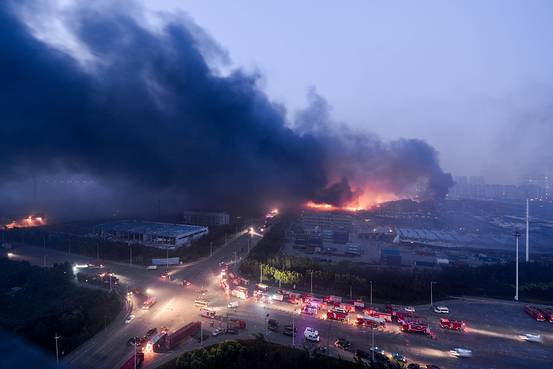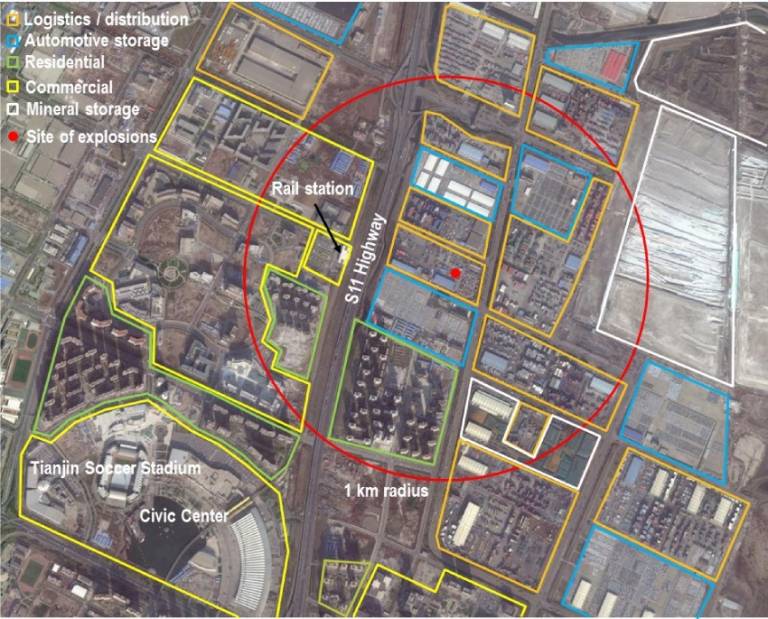The Chinese city of Tianjin, a port city of close to 14 million people and an important transport and manufacturing center, shook with a series of explosions in August of this year. The explosions at Ruihai International Logistics’s warehouse, which stored highly hazardous and flammable chemicals, led to more than 170 deaths and hundreds injured. Eight people remain missing. This week, a report published by Allianz Global Corporate & Specialty, a global insurance company, declared the Tianjin explosions as the “largest man-made loss suffered by Asia.” According to the report, the US$3.25 billion in losses amount to “almost half the year’s total losses globally.”
The continued human, environmental, and economic toll should come to no one’s surprise, and concerns over corruption within the Chinese government are rampant. It did not take long to realize that the explosions resulted from a failure of regulatory enforcement on the part of the government.
In fact, regulators are said to have ignored scholars’ apprehensions over storing hazardous materials in such close proximity to residential areas—at least three major residential communities were located within a 1km radius of the warehouse, far closer than legally permitted. The warehouse is said to have been storing 3,000 tons of hazardous material, including 700 tons of highly toxic sodium cyanide, much more than the maximum allowed. As a result, there have been concerns over the contamination of drinking water for surrounding communities. According to the Tianjin Environmental Protection Bureau, while levels of cyanide within the disaster zone “have shown levels of cyanide as high as 20 times above that considered safe,” no traces of cyanide have been found “in nearby seawater or areas outside the 1.8-mile (three-kilometre) radius quarantine zone.”
Tianjin’s blasts represent a major challenge for China’s legal system and the effective protection of people’s health and lives in the country. The many emergency response laws passed by China are, by their very nature, reactionary and do not prevent these accidents from taking place. Additionally, while an individual can be prosecuted for the violation of management regulations of hazardous materials under Chinese criminal law, corruption among regulators creates a serious obstacle to effective enforcement of the existing Dangerous Chemicals Regulations, which can actually prevent these incidents from occurring. As of September, 12 of the company’s employees and executives (including the president and vice-president) and 11 government officials have been detained. Yang Dongliang, head of the agency responsible for industrial safety, is under investigation for corruption.
What this incident highlights is the importance of regulatory enforcement. As lawyers, we are oftentimes content with the simple existence of laws and regulations that, on paper, further our cause, but we often forget about the importance of “follow through,” meaning their implementation or operationalization and their transformation into real impact. This also implies the urgent need to address corruption, which can severely impact the effectiveness of laws and regulations. After all, corruption has been widely described as an “epidemic,” which plagues many countries around the world. Therefore, until corruption is not properly addressed and regulations not properly enforced, such catastrophes will continue to emerge, putting at risk the wellbeing and lives of people.





